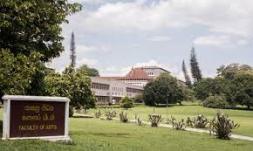Michael Roberts
The academic world and its scholarship is marked by cooperative work as well as animosities and rivalry – whether personal or based on political affiliations. The Sri Lankan scenario was/is no different. As I participated in this environment as a lecturer in History at Peradeniya University,[1] I was extremely fortunate in: (A) benefitting from a salubrious physical setting and a favourable arrangement of buildings and a super library; and (B) a bunch of dons who were as inspiring as amiable –so that the “Senior Common Room’ in the Faculty of Arts was not only a spot for invigorating tea, but also a site for the exchange of ideas.


















